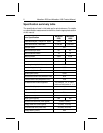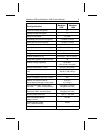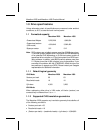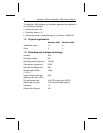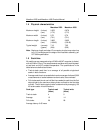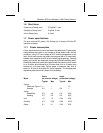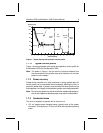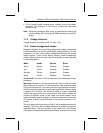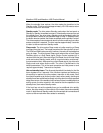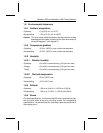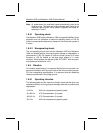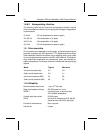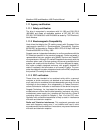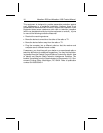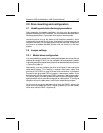
• 100 mV peak-to-peak triangular-wave injected noise at the power
connector. The frequency is 100 KHz to 10 MHz with equivalent
resistive loads.
Note.
Equivalent resistance (9.26 ohms) is calculated by dividing the
nominal voltage (5V) by the typical RMS read/write current (0.54
amps).
1.7.4 Voltage tolerance
Voltage tolerance (including noise): +5 volts, ± 5%
1.7.5 Power-management modes
Seagate’s Marathon drives provide programmable power management
to enhance battery life and to provide greater energy efficiency. In most
computers, you can control power management through the system
setup program. These drives feature several power-management
modes, which are summarized in the following table and are described
in more detail below:
Mode Heads Spindle Buffer
Active
Moving Rotating Enabled
Idle
Varies Rotating Enabled
Standby
Parked Stopped Enabled
Sleep
Parked Stopped Disabled
Active mode.
The drive is in Active mode during the read/write and seek
operations.
Idle mode.
At power-on, the drive sets the Idle Timer to enter Idle mode
after 5 seconds of inactivity. The drive remains in Idle mode with heads
flying over the media for 15 minutes; then the drive makes the transition
to Active mode and seeks to the last-known logical block address, where
it remains for 5 minutes. The drive then seeks to a new, unspecified
location two more times, for 5 minutes each, after which it makes the
transition to Standby mode. In Idle mode, the spindle remains up to
speed, the buffer remains enabled, and the drive accepts all commands
and returns to Active mode whenever a disc access command is re-
ceived.
The drive enters Idle mode when an Idle or Idle Immediate command is
received. The Idle or Idle Immediate command overrides the algorithm
described above. The drive remains in Idle mode until a disc access
command is received or the standby timer expires, whichever occurs first.
10 Marathon 2250 and Marathon 1680 Product Manual



